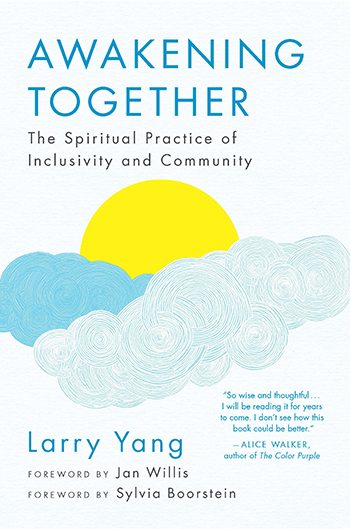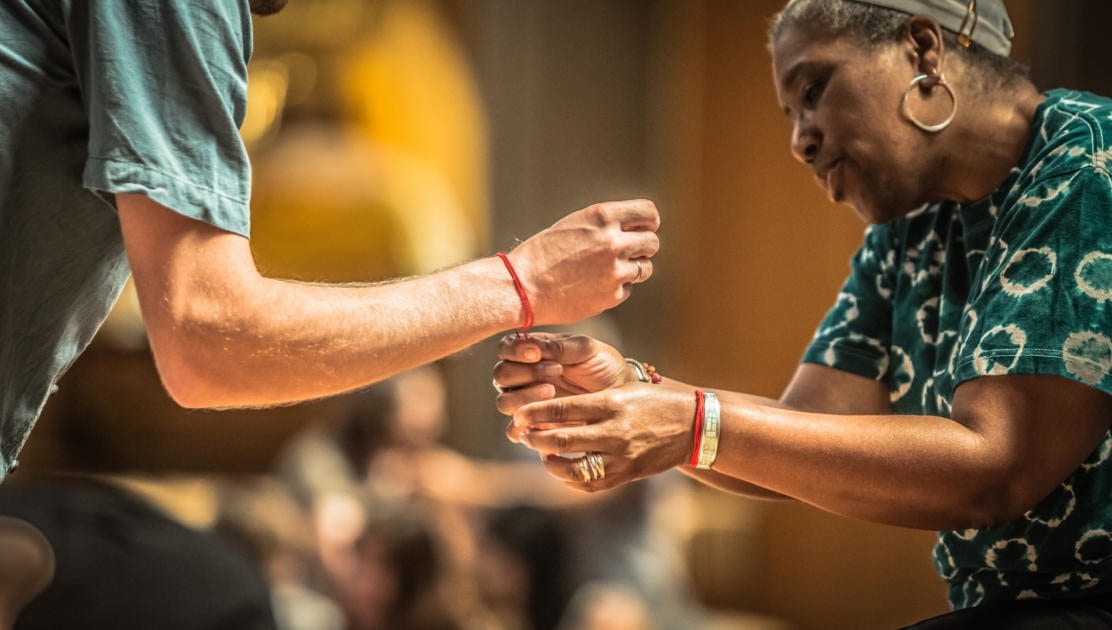The Practice of Integrity
Without integrity, mindfulness is morally meaningless.
By Larry YangEven in the confusion and complexity of our times, there is still wisdom that underlies our experience from generation to generation. One of these aphorisms state: “Integrity is doing the right thing, even when no one is watching.”
Without integrity, mindfulness is morally meaningless. Without integrity, metta is either wishful thinking or a spiritual bypass. Both mindfulness and metta require the actions of conscience motivated by an ethical barometer.
 We see many forms of this lack of integrity present, even with mindfulness. One subtle form of this is our cultural conditioning in our market economy to get away with as much as we can, while giving as little as possible. A more acute form of this dearth of morality is our ever-quickening slide into a post-factual, post-ethical world, where truth is not respected and deliberately made to be confusing and obscure.
We see many forms of this lack of integrity present, even with mindfulness. One subtle form of this is our cultural conditioning in our market economy to get away with as much as we can, while giving as little as possible. A more acute form of this dearth of morality is our ever-quickening slide into a post-factual, post-ethical world, where truth is not respected and deliberately made to be confusing and obscure.
When there is less or zero external accountability in our larger culture, there emerges an indispensable spiritual imperative to redouble our internal efforts and concentration to have a moral barometer: this is the integrity of mindfulness. The integrity of mindfulness requires we be of benefit to our collective humanness, not simply to our personal being.
I would broaden the scope of integrity:
- Integrity is doing the wise and compassionate action when no one agrees with us.
- Integrity is walking our highest path, even if it is painful and arduous and long.
- Integrity is acting on behalf of others when we do not have to because we have some benefit, privilege, power, or entitlement that protects us.
- Integrity is standing actively (and not “bystanding”) in solidarity with those whose voices and abilities have less volume or impact than yours.
- Integrity is being kind when everyone and everything around you is not kind.
- Integrity is loving when you do not feel loved yourself.
- Integrity is having ethics in unethical and amoral times—having a moral compass when others around you do not have a clue to what that means and/or disparage the very intentions of ethical behavior.
- Integrity is placing a higher value on the greater good of all, rather than the gain of an individual or selected individual groups.
- Integrity is holding to these principles, even when there are an infinite number of distractions, seductions, and judgments that seek to weaken and obliterate those principles.
In sum, integrity provides the vision, the aspiration, and the guide to any actions of mindfulness and kindness.
Where is your moment-to-moment practice of integrity in a world that wants us to compete primarily to benefit the gain of the privileged, the powerful, and the lucky few, instead of working for the equity and elevation of our human condition for the many? Where do you stand when fifteen-billion-dollar walls of fear, fueled by racial bitterness, are being designed to separate nations, instead of creating bridges of understanding and actions fed by common human connection? When fifteen billion dollars can buy enough food to feed five billion starving mouths, when fifteen billion dollars can create more than enough clean water for every person living on this planet, when fifteen billion dollars can buy six month’s worth of medication for every HIV patient in the world, when fifteen billion dollars can compensate 300,000 to 500,000 public school teachers with a full year’s salary—what choices would your integrity make? And what does your integrity ask of you when our government of the people, by the people, and for the people is based purely and only upon self-interest of those few individuals and groups in positions of power?
Reverend Dr. Martin Luther King Jr. reminds us: “There comes a time when one must take a position that is neither safe, nor politic, nor popular, but they must take it because conscience tells them it is right.”
Integrity is not just a personal practice but is a collective one that transforms our communities and our world. Only in an ethically wholesome society can we create a healthy system of social, economic, and political justice, not to mention spiritual freedom. And since society is made up of each of us, because each of us are part of that experience of being human, that ethical transformation begins here—with all of us awakening together with integrity.
Larry Yang teaches meditation retreats nationally and has a special interest in creating access to the Dharma for diverse multicultural communities. He is the author of Awakening Together: The Spiritual Practice of Inclusivity and Community, from which this article is excerpted with permission of Wisdom Publications.
